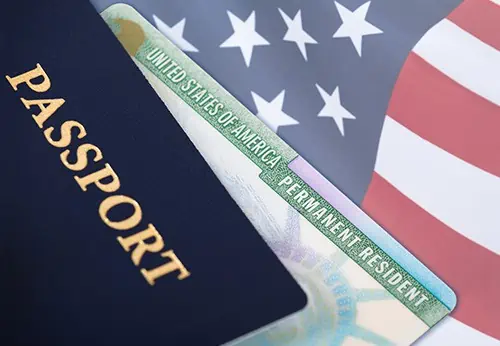Special Immigrant Juvenile Visas – What You Need To Know

What Is Special Immigrant Juvenile Status?
According to United States Citizenship and Immigration Services (USCIS), Special Immigrant Juvenile Status is for young individuals in the United States who require protection because they have been abused, abandoned, or neglected by a parent. It further states that those granted Special Immigrant Juvenile Status may also qualify for a green card without having to leave the U.S.
A mere visa obviously cannot undo the heartache that being in this situation would entail, however, these visas grant juveniles in such situations refuge. What’s more, the truth is that conditions in many countries force parents to send their children on treacherous journeys because the dangers along the way pose less of a risk than the violence in their community at home.
Even though it is impossible to imagine how difficult such a decision would be to make, this often serves as the basis for Special Immigrant Juvenile Status. This is because the U.S. government views such a situation as grounds for abuse, abandonment, and neglect.
Whatever situation leads a juvenile to seek this protected status, it is crucial to understand the immigration benefits that may be available to you – and to work with an attorney who can help you obtain them.
Who Is Eligible For A Special Immigrant Juvenile Visa?
Petitioners (or beneficiaries) — more colloquially, applicants — must be under 21 years of age and unmarried. An applicant may have been married previously, but they cannot be currently married when the petition is submitted.
Applicants must also have a state court in the United States issue a valid juvenile court order. This order must find the applicant to be dependent on the court, in either the court’s custody or in the custody of someone who has been appointed by the court. In addition, applicants cannot be reunited with their parents. Lastly, immigration authorities will determine if it is in the applicant’s best interest to remain in the United States instead of returning to their home country or country of prior residence.
As recently as June 2022, USCIS made changes to the laws that govern SIJS visas. Because immigration law in the U.S. is constantly changing, it’s important to have a lawyer on your team who can help you to make sure you’re taking the right steps. (Please refer to chapter 14 of Special Immigrant Juvenile Visas for more details.)
How To Apply For SIJ Classification
Unlike other visas, there are not multiple categories of special immigrant juvenile visas. As a result, the application process looks very similar in every case. Applicants seeking to get SIJ classification are required to submit the following documentation:
- Form I-130.
- This is a “blanket application” that is used for various types of special immigrants. When filling out the form, you will need to check box c in part two to denote that you are applying as a Special Immigrant Juvenile applicant.
- Birth certificate, passport, official foreign government-issued document, or other documentation that proves your age. A certified English translation will be necessary if your document is from a foreign government and in another language.
- Valid juvenile court orders.
- Consent from the U.S. Department of Health and Human Services (only if in its custody).
- Form G-28 (only when special immigrant juvenile attorneys represent you).
As a side note, if you are immediately eligible for an immigrant visa, you may submit Form I-485 with Form I-360.
How Long Does A Special Immigrant Juvenile Visa Take To Get Approved?
You may or may not face wait times for your visa approval. This is because SIJS visas fall under the EB-4 visa category, meaning that there are only a limited number of visas made available by the U.S. government each year.
If you have already been granted SIJ status and are facing deferred action, you can still apply for employment authorization via Form I-765. Denoting your eligibility as category (c)(14) is how you would successfully apply.
Do You Think You May Be Eligible? Call Our Office To Get Started Today
Our team of special immigrant juvenile attorneys is eager to listen to your story and begin working to serve your needs, ensuring you receive the visa and future you deserve. We will leverage our combined decades of experience, unparalleled service in representing clients, and deep knowledge of immigration law and the legal system to deliver the results you need in court.
If you are in Plainfield, NJ, and you want to begin the process of getting a Special Immigrant Juvenile visa, please don’t hesitate to get in touch with the Law Offices of Patrick C. McGuinness, LLC, and schedule a consultation today.

Get Your Questions Answered Today
(908) 645-1006
